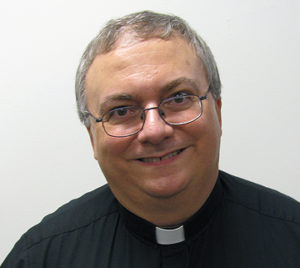Fifteenth Sunday in Ordinary Time
July 15, 2018

Readings:
First Reading: Amos 7: 12-15
Psalm: 85: 9-10, 11-12, 13-14
Second Reading: Ephesians 1: 3-14 OR 1: 3-10
Gospel: Mark 6: 7-13
There has been a lot of talk recently about “First Amendment Rights.” The First Amendment to the US Constitution protects five freedoms for American citizens: the free exercise of religion, freedom of speech, freedom of the press, freedom of assembly, and the freedom to petition the government. The first two of these freedoms have figured more in public discourse. The free exercise of religion has been debated concerning the freedom of religion versus the freedom from religion. But there has also been a confusion between religion and belief, with some claiming that because they have a belief which they claim is based on religion, the First Amendment allows them the freedom to act on that belief, regardless of how prejudicial or discriminatory it might be.
Likewise the term “freedom of speech” has been used to protect hate-filled, hurtful words which demean people and protect deep-seated prejudices. The present social climate has brought this sort of speech into the open, whereas before it was limited to talk in hushed tones, and done with sideways glances. People’s prejudices have become unmasked, and in certain situations, seen as a badge of honor. In a post-truth society, people feel free to say what they want, regardless of whether it is true or not. They point to the First Amendment, claiming that it gives them the right to say whatever they feel like saying.
What we have in the Scripture readings for today is a different take on the First Amendment freedom of speech. For as members of God’s people, we have been called to be prophets in society; to say to the world not what we want, but what God wants. In the readings, we see some of the aspects of that prophetic call.
First, there is a certain humility that comes from the call. Amos did not set out on the prophetic course. He tells Amaziah that he was a shepherd and a dresser of sycamores, minding his own business when God called him to speak God’s word to the people of Israel. It wasn’t something that he chose for himself, or something that he trained for on his own. His words had their origin in God and not in himself.
That humility is echoed in the gospel, where Jesus sends the twelve out humbly: nothing for the journey, no food, no sack, no money. He sends them to approach people in all humility, not come at them with power or prestige. The only power they would have would be the power to cast out sin from the world and to apply the soothing balm of God’s mercy to those who were troubled.
Second, we can see that the call of the prophet is not a call to “go it alone.” Jesus sends the Twelve out two by two. We are sent with companions on our journey, so that our discipleship is lived out in a dialogue with others. While the “free speech” of people today is often spoken in isolation from society, the words of the prophet and the disciple are words that demand accompaniment.
And third, what we can see from Paul’s letter to the Ephesians is that the words we speak are words that call people together in Christ. They are part of God’s plan to “sum up all things in Christ.” Later on, in Ephesians 4, Paul will explain this further by urging his people to speak “only such as is good for needed edification, that it may impart grace to those who hear.” So the words that the prophet of today speaks are grace-filled words, that bring all things together in Christ. Rather than the polarizing discourse that we frequently hear today, Paul urges us to work to unite people in God’s plan to bring everything together in Christ. We are to advance the world to that day when God will be all in all.
This means that the prophetic calling we receive at our baptism gives us a certain “freedom of speech.” But it’s a freedom of speech to speak God’s word and not my own. It is based on what God wants, not what I want. It calls people to a repentance which is based upon the healing power of God, and which casts out evil from their lives. It is a word that invites accompaniment, rather than individualism, and which brings people closer together in Christ.
The readings today invite us to reflect on several questions: Do my words and my actions reflect a humility which comes from knowing that all this relies upon God and not upon me? From what is God calling me, and where is God sending me? Who has God sent as my companion on this journey? What words must I say to bring people together in Christ? What “demons” do I cast out from the world, and how do I pour the healing balm of God’s mercy on the brokenness of the world? And how do I use my “freedom of speech” to build up the body of Christ?
Rev. Msgr. Patrick R. Lagges
Adjunct Professor, Word and Worship